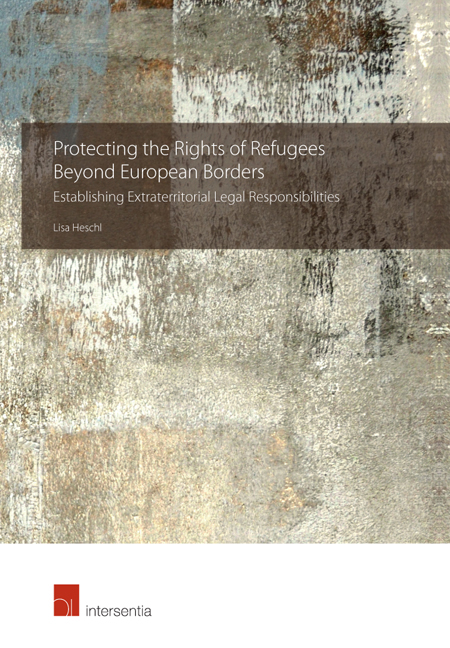 Protecting the Rights of Refugees Beyond European Borders
Protecting the Rights of Refugees Beyond European Borders Book contents
- Frontmatter
- Dedication
- Preface
- Acknowledgements
- Contents
- Table of Cases
- Table of Treaties, Instruments and Legislation
- List of Abbreviations
- Chapter 1 Introduction
- Chapter 2 The External Dimension of the European Migration and Asylum Policy
- Chapter 3 Extraterritorial Immigration Control Measures by EU Member States
- Chapter 4 Extraterritorial Immigration Control Measures by Frontex
- Chapter 5 Summary of Findings and Conclusions
- Bibliography
- Index
- About the Author
Chapter 4 - Extraterritorial Immigration Control Measures by Frontex
Published online by Cambridge University Press: 12 October 2018
- Frontmatter
- Dedication
- Preface
- Acknowledgements
- Contents
- Table of Cases
- Table of Treaties, Instruments and Legislation
- List of Abbreviations
- Chapter 1 Introduction
- Chapter 2 The External Dimension of the European Migration and Asylum Policy
- Chapter 3 Extraterritorial Immigration Control Measures by EU Member States
- Chapter 4 Extraterritorial Immigration Control Measures by Frontex
- Chapter 5 Summary of Findings and Conclusions
- Bibliography
- Index
- About the Author
Summary
INTRODUCTION
Whereas individual MS’ actions for the protection of the external borders are one of the cornerstones of the European migration management strategy, over the years, the understanding grew that in order to control the external borders effectively individual efforts have to be combined and coordinated. This role has been taken up by the European Border and Coast Guard Agency, Frontex (deriving from the French frontiers exterieurs), established in 2004 with the aim to improve the integrated management of the EU's external borders and enhance cooperation between the border authorities of MS. Since it took up its operational work in 2005 Frontex has become portrayed as both the inhuman ‘face’ of the EU's paramilitary approach to establishing ‘Fortress Europe’ and the success story protecting the EU from irregular migration and saving the lives of thousands at the external maritime borders. Diverging attributions and perceptions of the work of Frontex, combined with an unclear mandate, had the result that Frontex became a target of criticism for eroding international human and refugee rights standards blurring the allocation of responsibilities for the latter occurring in the course of its operations.
From a MS perspective the creation of Frontex has been assessed ambiguously. Sovereignty concerns caught MS in the trap between being reluctant to endow Frontex with wide-ranging competences, fearing loss of control over the external borders, and the knowledge that unilateral actions are not sufficient to protect them effectively. The dilemma already seen throughout the whole process of integrating migration and asylum in the Community sphere repeats itself again at this point. Overall, MS perceived Frontex mainly as a ‘vehicle for the pooling of expertise, intelligence, material and personal assets’, not considering it as competitor in their sovereignty over the external borders. Frontex added an additional layer to the border control powers of MS. Furthermore, the increasing numbers of people arriving but also losing their lives when trying to reach Europe meant that the establishment of Frontex was not only perceived as a means to restore the public's trust in the European migration control efforts but also allowed MS to shift the blame for the failure to control borders while protecting the lives of innocent people to a European agency.
- Type
- Chapter
- Information
- Protecting the Rights of Refugees Beyond European BordersEstablishing Extraterritorial Legal Responsibilities, pp. 141 - 222Publisher: IntersentiaPrint publication year: 2018
